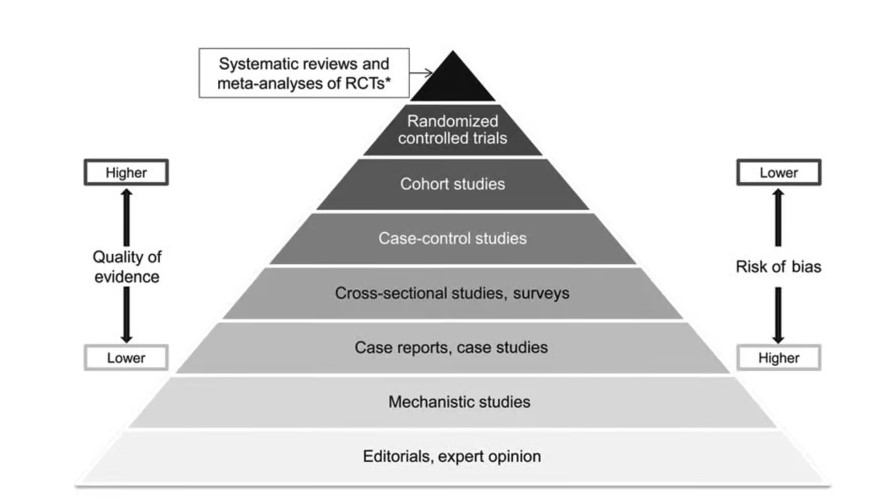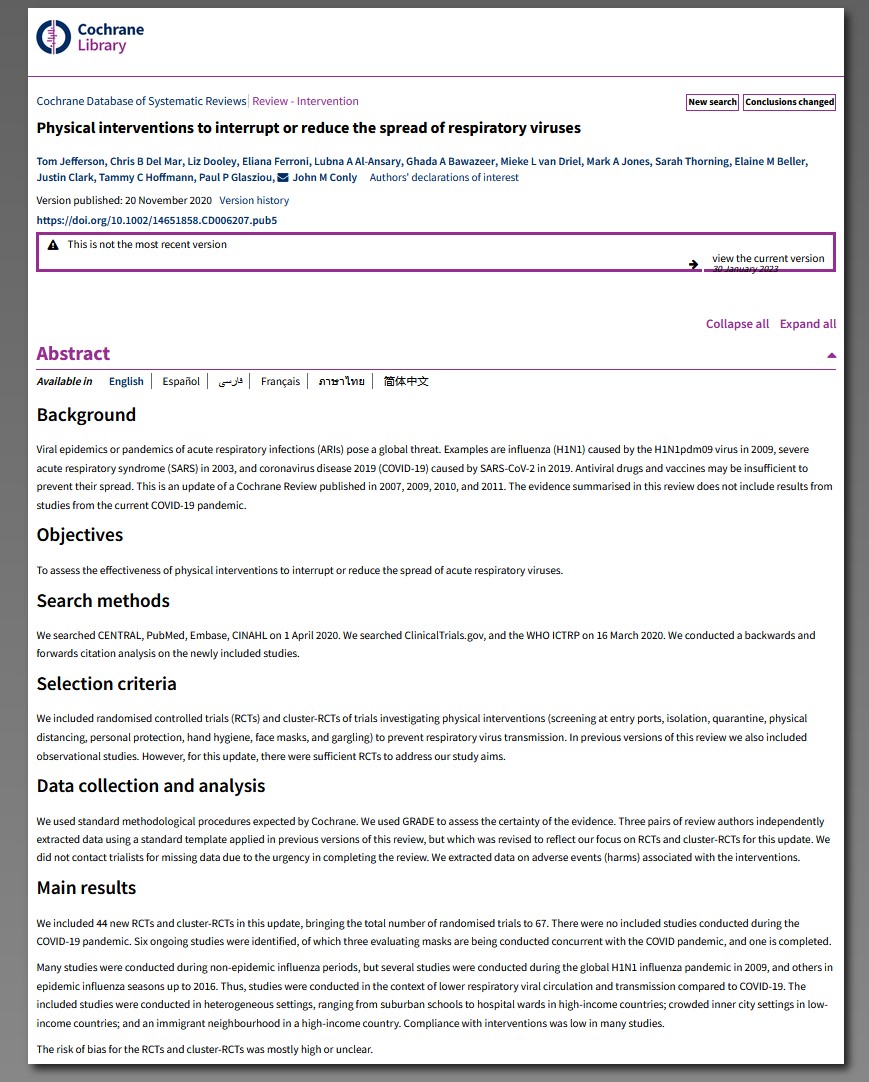In the ever-evolving landscape of COVID-19, the debate over mask-wearing has been nothing short of contentious.
To mask or not to mask, that seems to be the question on everyone's lips. It's a topic that has stirred up fervent discussions, both online and offline. Yet, in this sea of opinions, it's crucial to anchor our beliefs in credible scientific evidence. That's precisely what the Cochrane Library, often regarded as the gold standard in evidence-based medicine and medical research, sought to do when they delved into the realm of mask effectiveness.
The Cochrane Review: Unveiling the Evidence:
In a pursuit to shed light on this contentious issue, the Cochrane Database of Systematic Reviews embarked on a meticulous journey. Their mission: to explore the effectiveness of masks, particularly in preventing the spread of viral respiratory illnesses. This endeavor led them to conduct a Systematic Review titled "Physical interventions to interrupt or reduce the spread of respiratory viruses." The findings were illuminating, to say the least.
The Cochrane Review encompassed nine trials, involving a total of 3507 participants. These trials assessed the impact of wearing medical/surgical masks versus not wearing masks in various settings, from healthcare workers to community contexts. The conclusions, supported by substantial data, present a fascinating picture.

The Findings:
The Cochrane Review suggests that, based on the available evidence, wearing masks make little or no difference in the outcome of influenza-like illness (ILI) when compared to not wearing a mask. The risk ratio (RR) was calculated at 0.99, with a 95% confidence interval (CI) ranging from 0.82 to 1.18.
In simpler terms, it implies that the use of masks did not significantly affect the likelihood of contracting ILI.
Moreover, the review indicated evidence that wearing a mask probably makes little or no difference in the outcome of laboratory-confirmed influenza when compared to not wearing a mask.

A Glimpse into Pre-COVID Research:
One might wonder about the relevance of this research in our pandemic-stricken world. It's true; this research was conducted in the "pre-COVID" era. However, dismissing it based solely on that criterion would be premature. The Cochrane Review adds substantial weight to the growing body of literature that raises questions about the effectiveness of mask mandates.
Beyond Cochrane, a multitude of studies have scrutinized the efficacy of various types of masks, including cloth masks, medical masks, and even N95 masks. The findings have been diverse, with some pointing to limited effectiveness, particularly in preventing the transmission of respiratory viruses. Additionally, there is a burgeoning body of research emphasizing the potential downsides and harms of prolonged mask usage, particularly concerning children.
Conclusion:
While the debate over masks rages on, it's vital to ground our discussions in robust scientific evidence. The Cochrane Review serves as a reminder that the question of mask effectiveness is far from settled.
We must continue to scrutinize and evaluate the data, ensuring that our decisions and policies are informed by the best available evidence. After all, our collective health and safety deserve nothing less.


Masks Again?!? Mask Studies Everyone Should Read